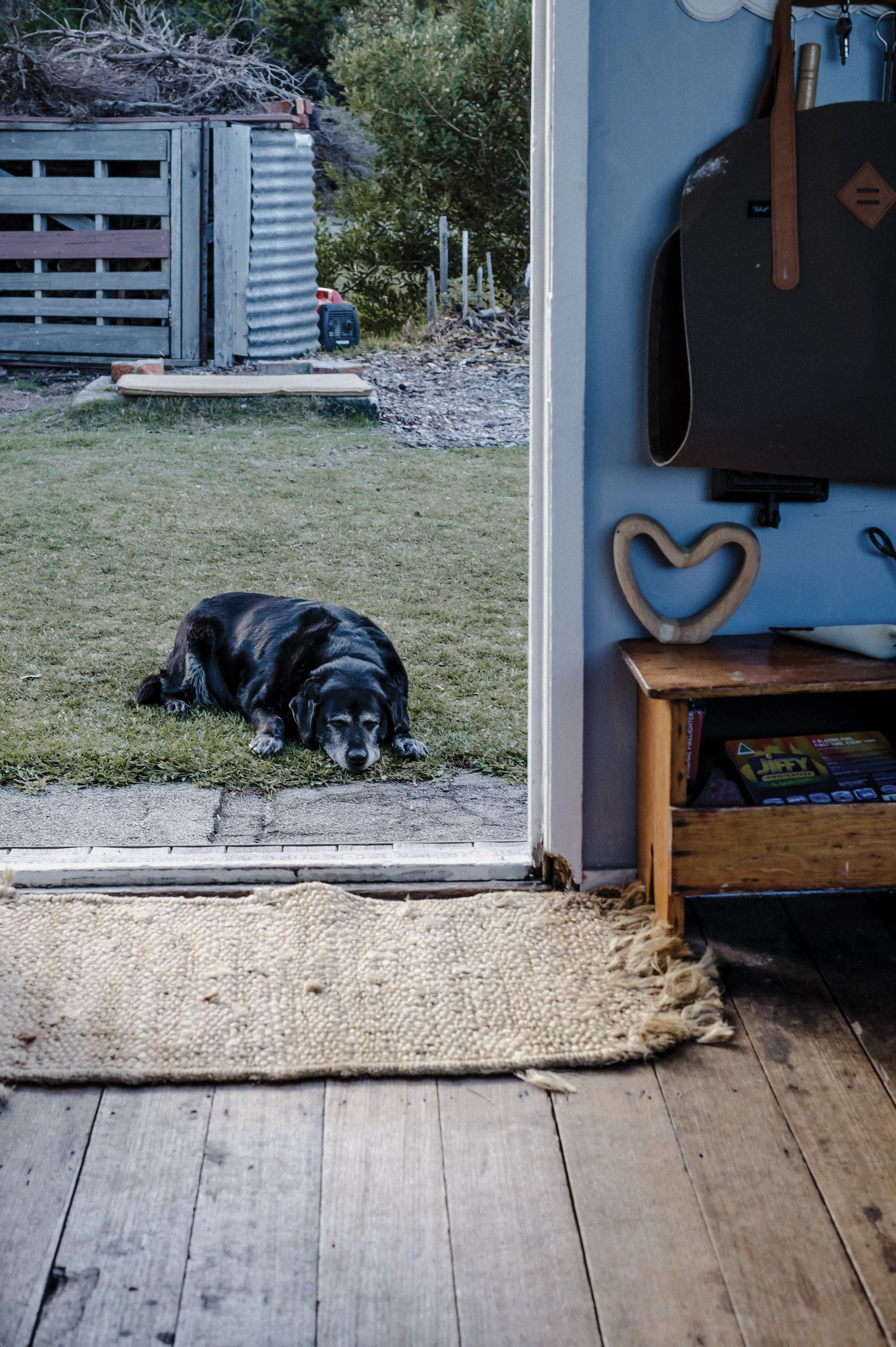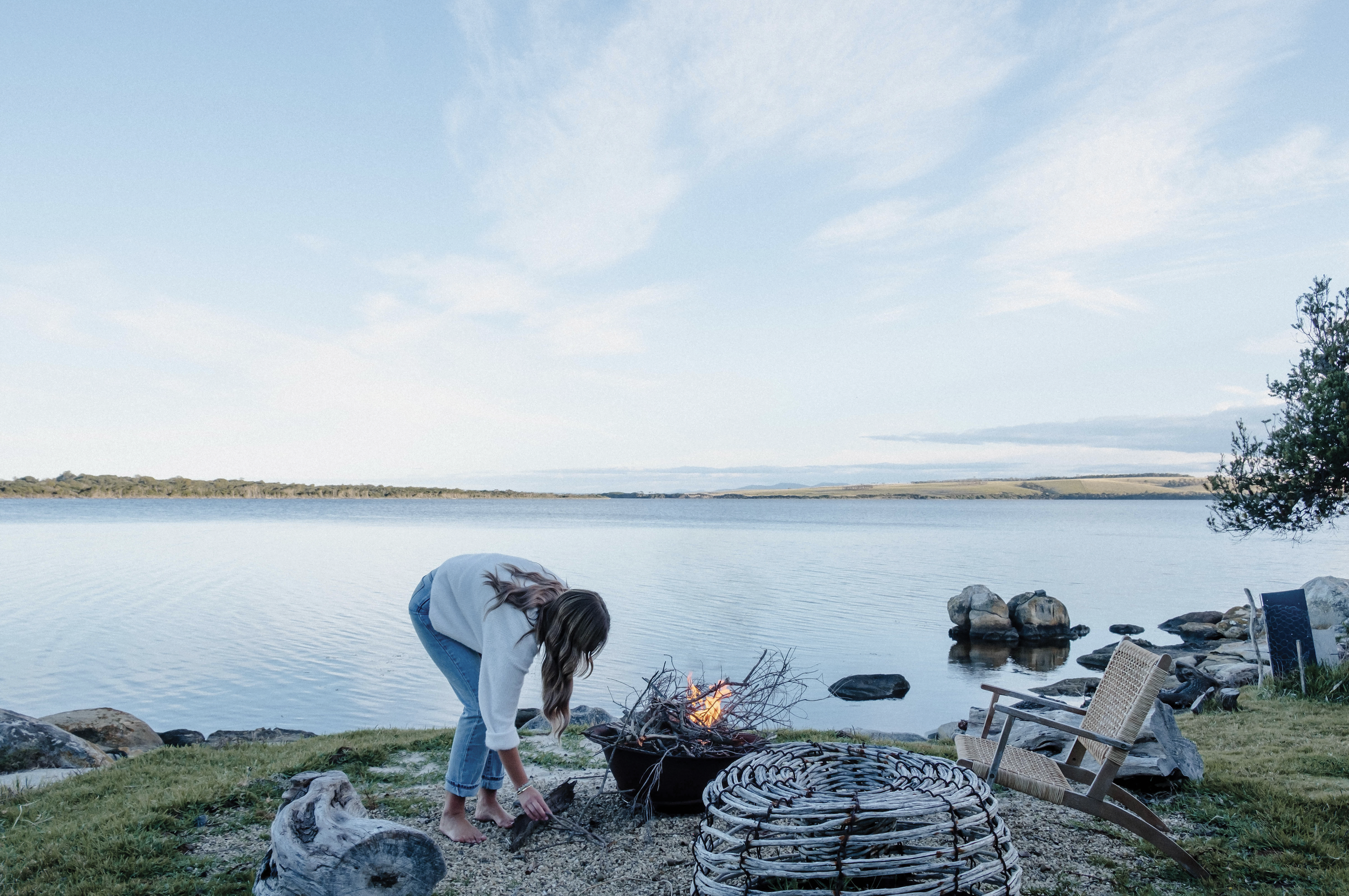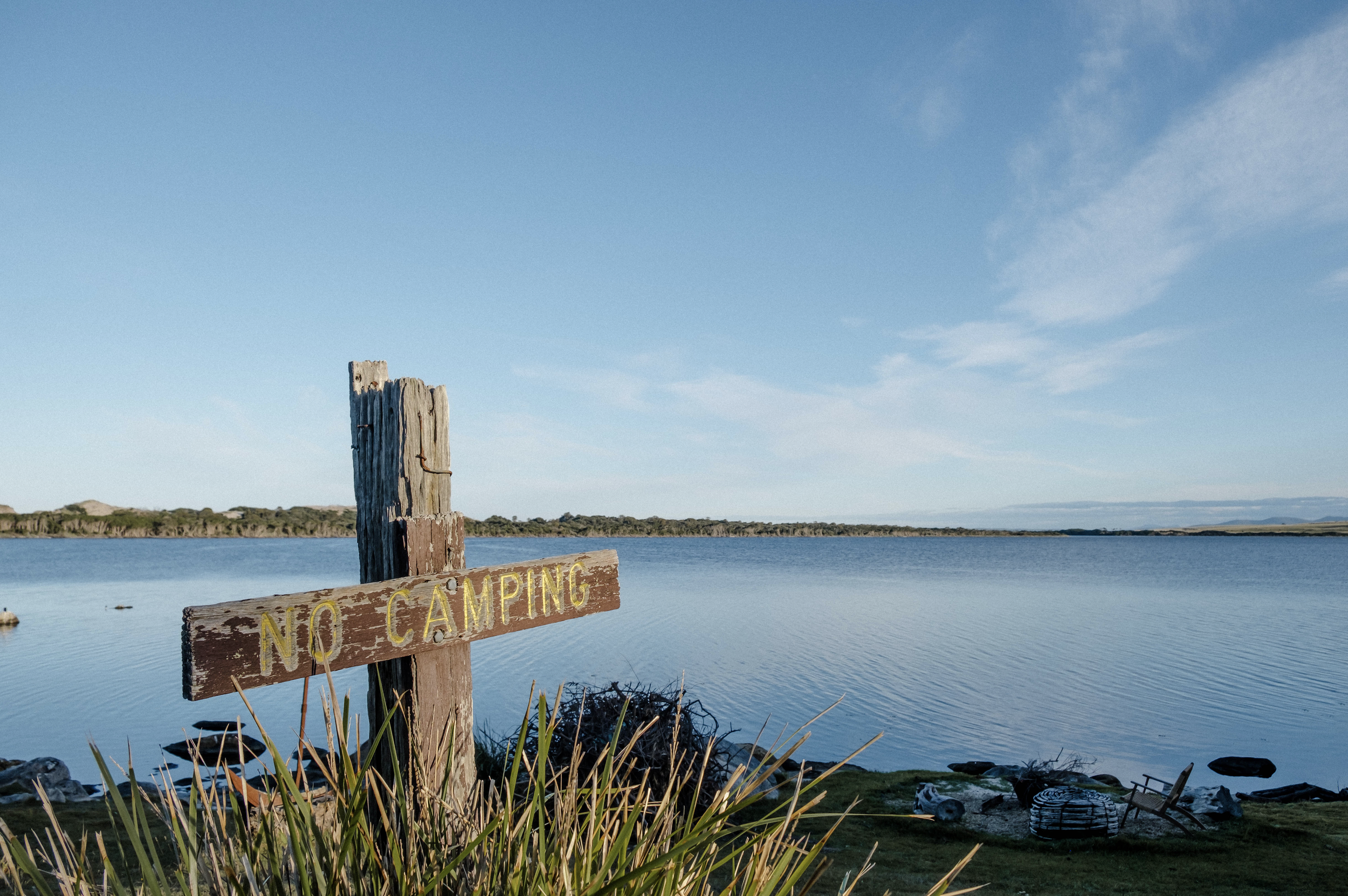Naomi Hume
INTERVIEW & IMAGES : Alice Armitage
Naomi Hume has dedicated much of her life to the pursuit of holding onto a core element of Tasmanian culture, the humble shack. We ventured to Naomi’s own shack and she shared with us what this shack business is all about.
After a very slow hour driving down a suspicious dirt road and a few close encounters with local wildlife, the scrub clears and you find yourself at Ansons Bay where Naomi’s family have had their shack for almost forty years. It is the simplest of dwellings, you’ll need to fire up the generator to turn the lights on, follow a seven step process to get the hot water to work and visit the long drop toilet if nature calls, but as you look across the stillness of Ansons bay, it’s pure bliss. Naomi was driven to share the uniqueness of her little shack and has now turned her storytelling into a platform designed to share the shack experience, to promote short term unique stays and to showcase the beauty of slow living.
How long have you had this shack?
My grandparents came into this shack when I was little. I think I was about six, and now I’m forty, so it’s been in our family’s life for a long time. When I was little we only lived an hour away from here and I’ve spent a lot of time here throughout different stages of my life.
How do you explain to someone who’s not Tasmanian what a shack is?
It’s almost endemic, almost indigenous. Shacks are so deeply embedded in Tasmanian culture. It’s a place of refuge, a place away from the daily grind. Traditionally there is nothing fancy about a shack. If your family doesn’t have one, you know someone who does. It’s so different to what mainlanders know as a holiday house or even an airbnb that they go to on holidays. Shacks are original and feel like an extension of your family. When I come here, it feels like catching up with an old friend. There is a warmth and safety to it that’s very hard to quantify. You drop your shoulders and leave your cares at the door. It’s the only place I feel holds me close and through all my adversity over the last decade this place has always been here, at the end of the dusty road.
Staying in a quintessential shack almost feels like taking a step back in time.
That’s the magic of it I think. When we’re here, the kids are out until dark, hanging out with the other kids around the bay, working on their tree fort down the road or we send them off in their row boats to go fishing for the day. We eat from the sea and connect to the land here. When I was little my nan would help me make kelp baskets and teach me about the bounty of the nature around us. It was beautiful and something I am working to pass on.
I lived in Tasmania for a couple of years. I was hypnotised by the majesty of the shack but it wasn’t something that I really understood until I experienced it myself. It’s very hard to explain to someone who isn’t Tasmanian or hasn’t spent a lot of time here just how deeply embedded shacks are in the Tasmanian culture. How would you describe it?
You could write a book about it, couldn’t you? It’s a feeling, and like many experiences, it’s hard to tell that story unless you really tap into the feeling of it. Having a shack is also just so common for Tasmanians. I’ve never known life without one, my children don’t know, my mother hasn’t ever known life without one. I grew up in a town of 600 people and I just can’t remember anyone not having a shack or a place they went to get away. My husband, Jamie, also grew up with a shack – it was an old aeroplane in the bush. As I said, shacks have never been anything fancy.
The Tasmanian shack phenomenon has really taken hold in recent years. It’s now become something that has become a very commercially viable experience to offer to the rest of the world. Do you think that has diminished the beauty of the experience in a way?
It’s a fine line, isn’t it? For me, the profile I’ve built across social media was to save this shack, my family’s shack. Then this new wave of interest came through and took over in a way. It felt like a tidal wave. I am such a genuine believer in the joy that shacks can bring to people and it’s a joy to be able to share that with others now. Which is why ‘Tasmanian Shack Life’ has now turned into a platform for me to share shacks that are available for short term stays and to support people who are wanting to open up their shacks and unique stays to be shared. Not everyone in this space is genuine so I hope that I can play a role in helping people share their places and make the most of this surge in interest in Tasmanian culture while maintaining that culture. There is a part of me that is genuinely worried about us losing sight of what shack life is all about, but I’m doing what I can to keep the tradition alive.
COVID made a lot of people reassess their lives, which led to a huge migration of people moving down or frequently travelling to Tasmania in search of space and fresh air. Have you felt a cultural shift from that influx of people?
Well it’s impossible not to alter the culture of a place when you have so many new and different people converging on a small island and in lots of ways that’s the allure of shacks, they rarely change. But this new dynamic in Tasmania is good for economic growth, it’s offering more opportunities for myself and my husband. It means more opportunities for our kids but change can also be a scary thing.
How did your love of the shack life start to transition into the brand you’ve built today?
I was overseas when I first really thought about it, it was 2017 and I was travelling with a friend who was quite proactive on social media. We were talking a lot about the shack and she really encouraged me to share more about it online. That trip brought me a lot of clarity and I was really ready to dive into something new. At first it was a great way for me to experiment with photography. When I came back to Tasmania, I would ride around Ansons Bay on my pushbike and just take lots of photos and share them. Then I wanted to capture other people in their special spaces. I started venturing to other people’s shacks, staying with them, experiencing those spaces and sharing them as well.
When did you know it was time to turn that profile into a business?
Momentum really started to build in 2018 but it wasn’t until 2020 that I built a business around the platform I’d created. Charging for the services and exposure I’m able to offer hosts of other shacks and unique stays became a necessity, but I’m still very particular about the people that I choose to work with and I put a lot of effort into cultivating genuine relationships with each person. I hope that genuineness shines through my work. It’s really important to me that I understand their story, their space and their connection to the shack life.







